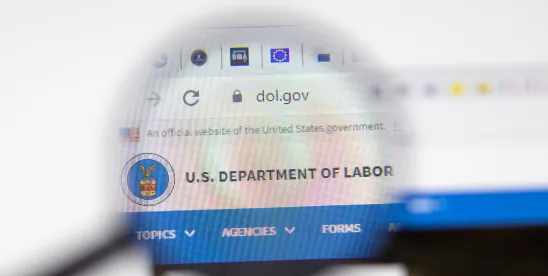On May 1, 2025, the Wage and Hour Division (WHD) of the U.S. Department of Labor (DOL) issued a Field Assistance Bulletin stepping back from a restrictive independent contractor rule issued under the Biden administration — a move that should be welcomed by manufacturers and franchisors who depend on workforce models including independent contractors. Although the 2024 rule remains on the books, the DOL has issued an enforcement guidance signaling a shift back toward a more business-friendly framework.
Specifically, the DOL position in the 2024 Fact Sheet and the 2024 regulations (“2024 Rule”) stated that the “economic realities” of the worker’s relationship with the purported employer would determine whether that worker was an employee or an independent contractor. Specifically, in the 2024 Rule, the DOL’s enforcement position was that, if the worker was economically dependent on the employer for work, then worker would be considered an employee. If the worker was truly in business for themselves, then the worker would be an independent contractor. Under this rule, business were required to examine the totality of the working relationship to determine the worker’s status. This 2024 Rule went through numerous, detailed examples that left little doubt that the intention was to make it more difficult to classify a worker as an independent contractor. Once the worker was deemed an employee, that worker was entitled to minimum wage, overtime, and other protections under the Fair Labor Standards Act.
In its May 1, 2025, announcement, the DOL directed WHD investigators not apply the 2024 Rule in their current enforcement matters. The announcement further stated that the WHD would return to the enforcement position from its 2008 Fact Sheet and 2019 Opinion Letter, returning to the more traditional “economic realities” test. The factors described are significantly more lenient than the 2024 Biden-era rule. This signals a return to a more predictable and flexible standard, allowing for more workers to be considered as independent contractors.
The New (Old) Test Is Effective Immediately
Effective May 1, DOL investigators will evaluate independent contractor status under traditional “economic realities” principles. This means weighing several factors to determine whether a worker is truly in business for themselves or dependent on the hiring entity.
The factors are:
- Whether the work is integral to the business;
- The duration and permanency of the relationship;
- The worker’s investment in equipment or materials;
- The business’s degree of control over the worker;
- The worker’s opportunity for profit or loss;
- The level of market competition and initiative exercised; and
- The degree of independent business operation.
The 2024 Rule Still Exists (For Now)
Five DOL enforcement actions over the 2024 Rule remain pending, but the DOL has sought to pause those lawsuits while it reconsiders the 2024 Rule. It is important to note that, while the DOL will no longer enforce the 2024 Rule, it has not yet been rescinded or revised. Therefore, it remains in place for private litigants until the DOL takes further action. But, in its May 1 announcement, the DOL stated its intention to develop regulations for how workers should be classified. Companies, including franchisors and manufacturers, should stay vigilant, particularly in industries prone to misclassification claims.
Businesses should be cautious about making changes to their classification of workers based on the May 1 announcement, given that the 2024 Rule remains the law. They should also continue to monitor the DOL’s potential repeal/revision to the 2024 Rule. As always, they should reach out to counsel on these issues, as re-classifying workers can have significant consequences.
Implications for Companies, Including Franchisors and Manufacturers
This more balanced framework allows businesses to structure relationships with franchisees and service providers in a way that better reflects operational needs without automatically triggering employee status under federal wage laws.
Don’t Ignore State-Level Rules
Federal flexibility doesn’t equal nationwide relief. Many states — especially California, New Jersey, and Massachusetts — have adopted more rigid standards, like the ABC test, making it harder to maintain contractor classifications.
Key Takeaways
- Audit your workforce by jurisdiction, even if your national strategy aligns with federal guidance. Local laws could create hidden landmines.
- Reassess current contractor relationships in light of the relaxed enforcement stance, especially in roles involving logistics, field services, and third-party distribution.
- Work with legal counsel to create classification models that align with both federal and applicable state law.
- Monitor regulatory developments as the DOL is likely to propose a formal rescission or new rule later this year.
- Be flexible and prepared for any changes you implement now should be easy to reverse in case the political winds shift again.





 />i
/>i

